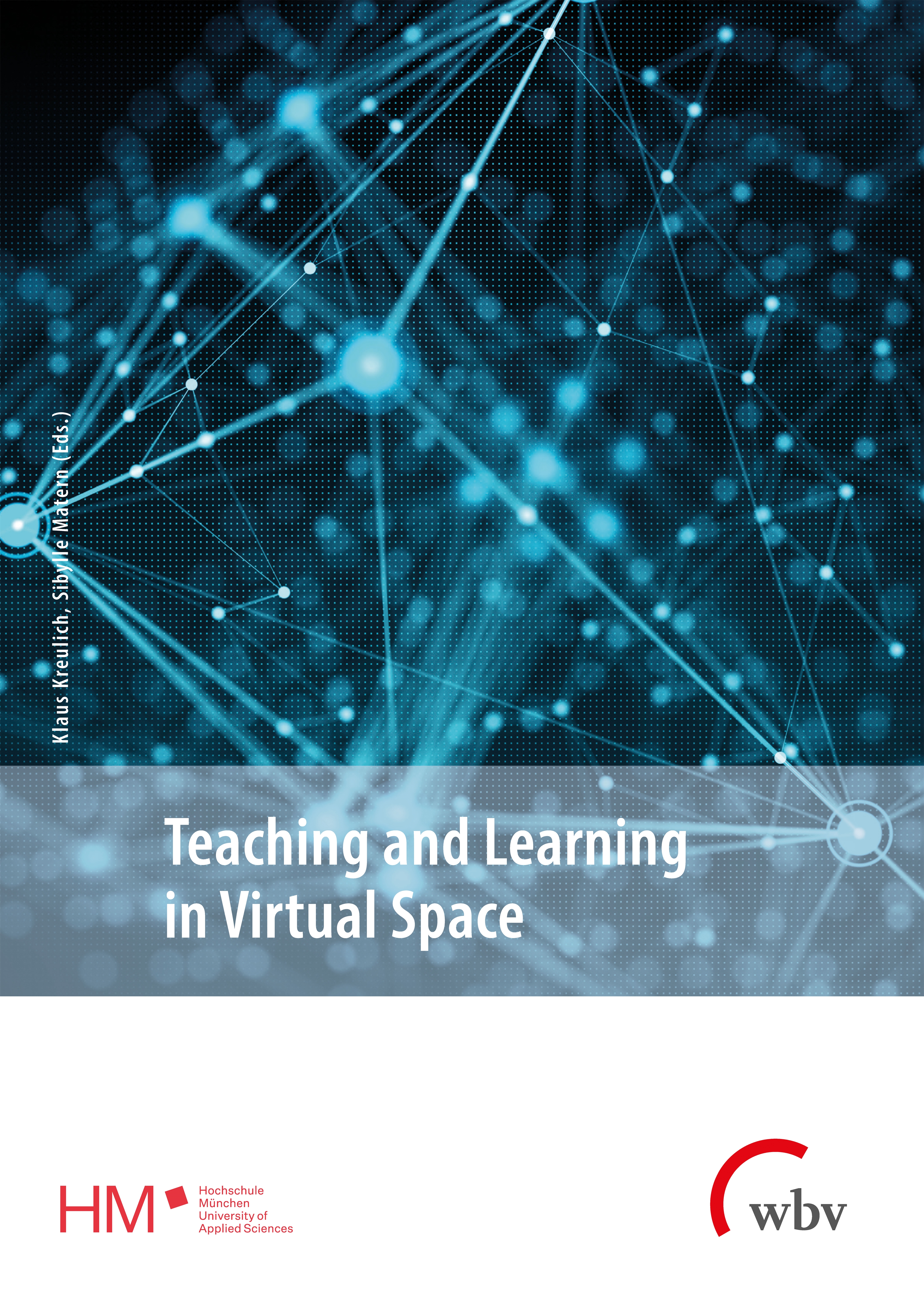Teaching and Learning in Virtual Space
Neue Formen der Kommunikation sowie kollaborative Lern- und Arbeitsmöglichkeiten mit virtueller Realität an Hochschulen sind Themen des Sammelbandes. Die Autor:innen untersuchen und diskutieren, wie die Digitalisierung und die Nutzung digitaler Medien das Lernverhalten und die Zusammenarbeit im Hochschulkontext beeinflussen. Wie interagieren Studierende und Lehrende in einer virtuellen Umgebung? Wie können Teams trotz räumlicher Trennung effektiv zusammenarbeiten? Welche Strukturen, Lernformate und didaktische Methoden brauchen Studierende und Lehrende, wenn sie nicht persönlich, sondern online, virtuell oder hybrid kommunizieren? Die Beiträge basieren auf Kollaborationsszenarien, die als Prototypen an der Hochschule für angewandte Wissenschaften München entwickelt und getestet wurden.
Der Sammelband bietet Einblicke in aktuelle Forschungen und innovative Ansätze für die Nutzung virtueller Realität im Bildungs- und Arbeitsbereich.
This anthology is concerned with new forms of communication as well as collaborative learning and working possibilities with virtual reality at universities. The authors examine and discuss how digitalisation and the use of digital media influence learning behaviour and collaboration in the university context. How do students and teachers interact in a virtual environment? How can teams work together effectively despite spatial separation? What structures, learning formats and didactic methods do students and teachers need when they communicate online, virtually or hybrid rather than face-to-face? The contributions are based on collaboration scenarios that were developed and tested as prototypes at the Munich University of Applied Sciences HM.
The anthology offers insights into current research and innovative approaches for the use of virtual reality in education and work.
Der Sammelband bietet Einblicke in aktuelle Forschungen und innovative Ansätze für die Nutzung virtueller Realität im Bildungs- und Arbeitsbereich.
This anthology is concerned with new forms of communication as well as collaborative learning and working possibilities with virtual reality at universities. The authors examine and discuss how digitalisation and the use of digital media influence learning behaviour and collaboration in the university context. How do students and teachers interact in a virtual environment? How can teams work together effectively despite spatial separation? What structures, learning formats and didactic methods do students and teachers need when they communicate online, virtually or hybrid rather than face-to-face? The contributions are based on collaboration scenarios that were developed and tested as prototypes at the Munich University of Applied Sciences HM.
The anthology offers insights into current research and innovative approaches for the use of virtual reality in education and work.
Editors' Introduction
Klaus Kreulich
Immersive Collaboration: Facilitating Good Teamwork
Christian Strobel
Psychological Aspects of Virtual Collaboration: A brief overview
Marion Rauscher
Let's Collaborate, Avatar: Competence Acquisition in Multi-User Virtual Reality Environments
Audrey Stolze
Virtual Collaboration as a "Future Skill" - Analysis of an Innovative Learning Scenario for a HEI of the Future
Sierk Horn, Miyuki Takino
Digital Negotiations across Cultures
Andrés Rueda, Bettina Maisch
From Second Life to Second Job: Creativity and Entrepreneurship Education in the Metaverse
Markus Stäuble
Gamification for team motivation
Christina Schindler
Virtual Collaboration in a technical laboratory - an example from semiconductor technology
Christian Hanshans
(Virtual) Collaboration in Medicine and Biomedical Engineering
Student Postscript
Glossary
The book website
Klaus Kreulich
Immersive Collaboration: Facilitating Good Teamwork
Christian Strobel
Psychological Aspects of Virtual Collaboration: A brief overview
Marion Rauscher
Let's Collaborate, Avatar: Competence Acquisition in Multi-User Virtual Reality Environments
Audrey Stolze
Virtual Collaboration as a "Future Skill" - Analysis of an Innovative Learning Scenario for a HEI of the Future
Sierk Horn, Miyuki Takino
Digital Negotiations across Cultures
Andrés Rueda, Bettina Maisch
From Second Life to Second Job: Creativity and Entrepreneurship Education in the Metaverse
Markus Stäuble
Gamification for team motivation
Christina Schindler
Virtual Collaboration in a technical laboratory - an example from semiconductor technology
Christian Hanshans
(Virtual) Collaboration in Medicine and Biomedical Engineering
Student Postscript
Glossary
The book website
Prof. Dr.-Ing. Klaus Kreulich ist Professor für Medienvorstufe sowie Vizepräsident für Lehre der Hochschule München. Er ist Experte und gefragter Redner zu Digitalisierungstrends der Medienindustrie.
Sibylle Matern ist Kommunikationswissenschaftlerin und wissenschaftliche Mitarbeiterin im Projekt „Virtuelle Kollaboration in der Arbeitswelt 4.0" an der Hochschule München.
Prof. Dr.-Ing. Klaus Kreulich is Professor of Premedia Technology and Vice President of Munich University of Applied Sciences HM. He is an expert and sought-after speaker on digitisation trends in the media industry.
Sibylle Matern is a communication scientist and a research associate in the project "Virtual Collaboration in the Working World 4.0" at Munich University of Applied Sciences HM.
Sibylle Matern ist Kommunikationswissenschaftlerin und wissenschaftliche Mitarbeiterin im Projekt „Virtuelle Kollaboration in der Arbeitswelt 4.0" an der Hochschule München.
Prof. Dr.-Ing. Klaus Kreulich is Professor of Premedia Technology and Vice President of Munich University of Applied Sciences HM. He is an expert and sought-after speaker on digitisation trends in the media industry.
Sibylle Matern is a communication scientist and a research associate in the project "Virtual Collaboration in the Working World 4.0" at Munich University of Applied Sciences HM.
weitere Infos
Kreulich, Klaus & Matern, Sibylle (Eds.) (2023). Teaching and Learning in Virtual Space. Bielefeld: wbv Publikation. https://doi.org/10.3278/9783763974191
